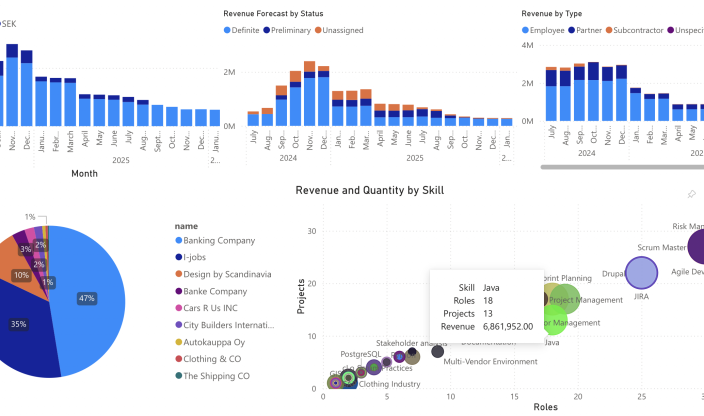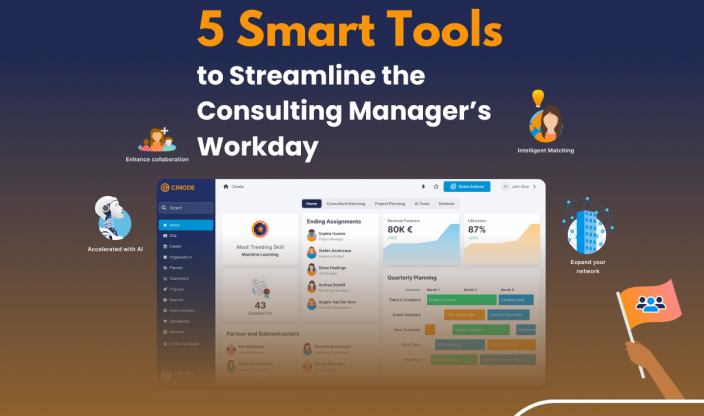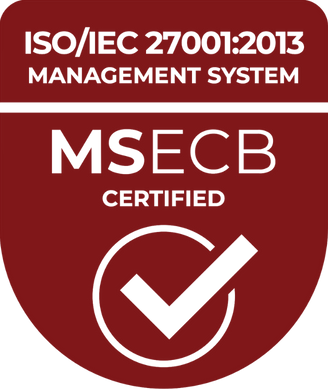The Future of Management Consultancy

Management consultants help companies and management teams improve their performance. Their experience and qualified methods, tools, and models form the basis of the work.
History
Historically, the role emerged in connection with the industrial revolution. For over 100 years, business leaders around the world have sought support in areas they themselves do not master and lacked expertise in how their business could be organized.
During the beginning and mid 20th century, business leaders often had a lack of knowledge regarding finance and administration. After the Second World War, however, the industry evolved, and focus shifted to quality development, recruitment and leadership.
Undefined role
The area of the management consultant has always been the generalist, with cutting-edge expertise in one or more areas. During the 2000s, the expertise with the highest demand has been IT, digitalisation, system, and leadership development.
During the past decade, more and more leaders and managers have trained in areas that were previously consulting core areas; finance, financing, administration, goal management, strategy, analysis of the business world, organizational and cultural development. This has come to reshape the management consulting role.
Further, the consulting role has become more unclear as the Management Consultant title lacks protection, meaning that anyone can use it. Despite this, the profession of a management consultant is considered a future job and constitutes one of the most popular professions among college and university students. Even former managers see it as a career opportunity.
Global perspective
The global management consulting industry is valued at approximately USD 150 billion (2020), with revenues distributed across North America (48 percent), Europe (30 percent), and Asia (14 percent).
With an annual growth rate around nine percent, the management consulting industry mainly consists of small consulting firms and sole consultants.
The needs of customers include everything from strategy and operation to more technologically oriented competencies. However, about three-quarters of all managers in small and medium-sized companies state that they see no need for management consulting services.
Investment in public education and infrastructure
The outbreak of the coronavirus has led to a limitation of assignments in the market. This is because governments globally introduced shutdowns and restricted trade, which reduced the need for this type of professional service.
Research results from the OECD show that the Nordic region is entrepreneurial, runs learning organizations, and have more satisfied employees, in comparison to the rest of the world. Among other things, this is due to early investments in public education and democracy, an infrastructure that places demands on innovations and stronger work environment legislation. The need for support from management consultants will, therefore, in addition to digitization, further focus on sustainability, gender equality, and collaboration.
Future trends
Over the next ten years, a number of factors will most likely affect the Swedish management consulting market. A number of examples are mentioned below.
Global expansion
Many customers are expanding globally, requiring more sophisticated and internationally oriented services such as more joint ventures, foreign investment, international expansion, and multinational companies establishing facilities in high-growth regions. Globalization in the management consulting industry is also gaining momentum thanks to rapid growth in the internet, automation of consulting processes, and development in data security.
New customer segments
The annual growth rate in the coming decade will be about nine percent. Small and medium-sized companies, which currently do not hire management consultants, will come to be a larger target group than previously. The understanding that digital development needs external support to further the development of the business will increase, which strengthens the need for the management consultants’ competence within digital projects to spur growth and revenue.
The public sector’s need for management consultants becomes greater as society’s need to collaborate, become more flexible, digital and efficient, increases for many authorities, state-owned companies, municipalities, and regions. Standardized framework contract calls and direct procurement facilitate this.
Increased rate of change
The increasing pace of change is the biggest challenge for customers in the future. It will have an impact on the capabilities and skills that companies and organizations need to develop in the coming years.
Agenda 2030 and sustainability
Long-term planning presupposes new and more sustainable business models. The traditional boundaries around an organization are being challenged and the need to be part of ecosystems, characterized by increased openness towards customers, stakeholders, and employees, is increasing.
Flexible solutions
The ability of customer organizations to handle new conditions requires development in several areas. Competence from the management consultants needs to be added to experiment, lead change, act as support in implementing new business models, implement market and sales integration, strengthen employee engagement and personal responsibility, create a consolidation of digital platforms and be able to make better use of digital development.
They mediate consultants, often one-man companies, and can impartially match assignments with the right skills from the entire market, in the form of resource reinforcement, for example, interim manager assignments. They are getting better at competing with management consulting companies. Enemy or partner?
Increased competition
In addition to consulting brokers and a few larger consulting companies with framework agreements in the public sector, many new management consulting companies are started every year, most of them one-man companies. Former executives or freelancers are often found here. Many client companies hire management consultants and then do not need to recruit externally.
These are the Swedish management consultants of the future
Customers’ need to implement change will increase. The need to gather facts quickly and flexibly, receive objective recommendations and support in implementing structural and cultural changes is increasing. This is to achieve the desired results and benefits. It is also a matter of obtaining help in areas that the customer does not master himself.
All indications are that the number of customers and markets will increase.
Sweden is affected by a lack of skills in several different areas. Here, management consultants contribute to digital and smarter solutions.
Management consultants need to adjust skills and adapt to areas where the customers’ requirements, needs, and wishes. It includes cultural and creative solutions, but also digitization and AI from a holistic perspective. To be one step ahead.
For customers to feel secure and confident, the quality of the services must improve, which requires new skills and orientations. Easier assignments can be automated and resource consultants can be provided by consulting brokers.
In order to deliver results and effects at more competitive prices, consulting companies also need to streamline their own operations.
Find your next consultancy assignment

Gästbloggare - Lilian Klasson, medgrundare av Stratvise, ordförande för Sveriges Managementkonsulter
Gästbloggare - Lilian Klasson, medgrundare av Stratvise, ordförande för Sveriges Managementkonsulter
You may also like...
All posts
Oct 10 2025 · Consulting, Entrepreneurship
🚀 The Head of Analysis: Seven Success Factors for Consulting Firms 2025–2030

Sep 10 2025 · Consulting
“It’s About Growing Right – Not Fastest” – Netlight Scales Up with Culture and AI in Focus

Aug 21 2025 · Cinode, Consulting
🚀 A Clear View and Fast Execution – Our Journey with Cinode

Apr 30 2025 · Consulting
Understanding the psychology behind pricing

Apr 15 2025 · Consulting
How to set (the right) price?

Mar 18 2025 · Consulting
How do we charge for the value of our services?

Mar 11 2025 · Consulting
New AI Act: Checklist for Consultants and Consulting Firms

Feb 27 2025 · Consulting
Maximize Insights in Your Consulting Business with Cinode and Power BI

Jan 31 2025 · Consulting
5 Smart Tools to Streamline the Consulting Manager’s Workday

Jan 29 2025 · Consulting
New guide: How to Build Consultant Resumes That Win Clients

Nov 05 2024 · Consulting
Sweden’s most profitable consulting company reveals its secrets

Oct 30 2024 · Consulting
